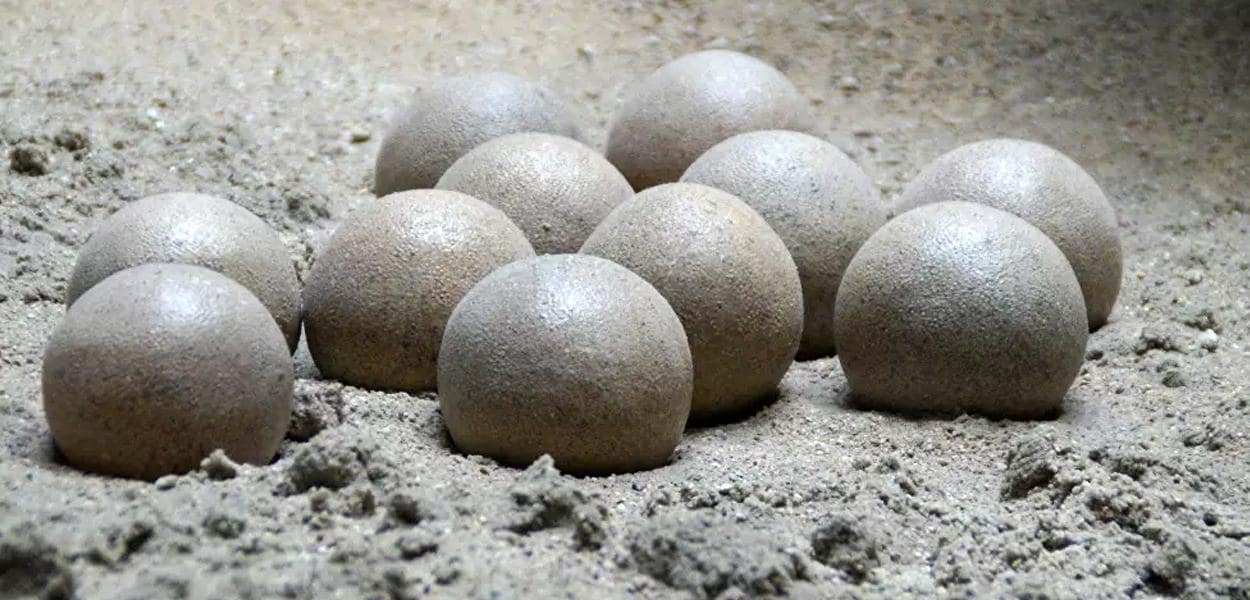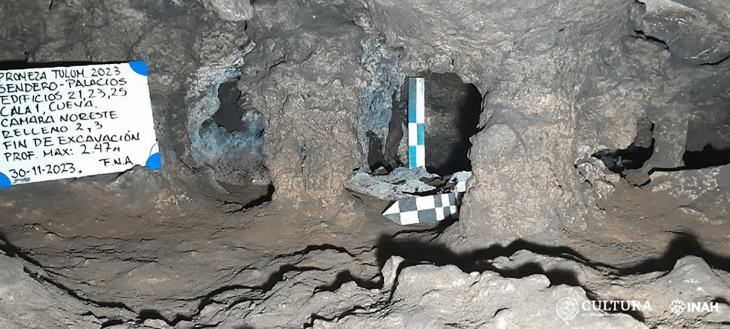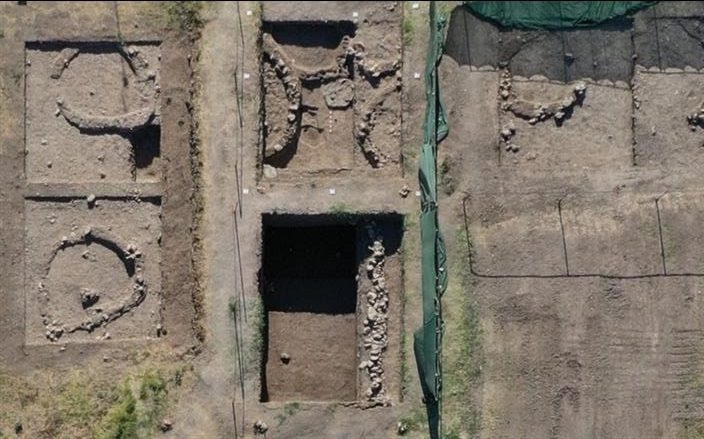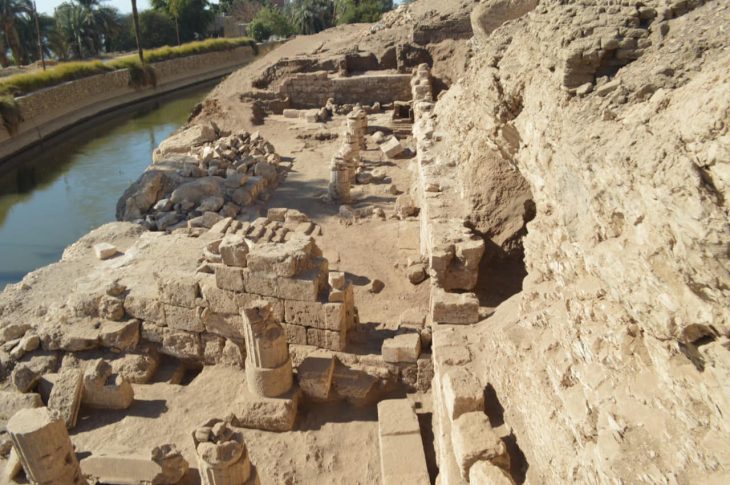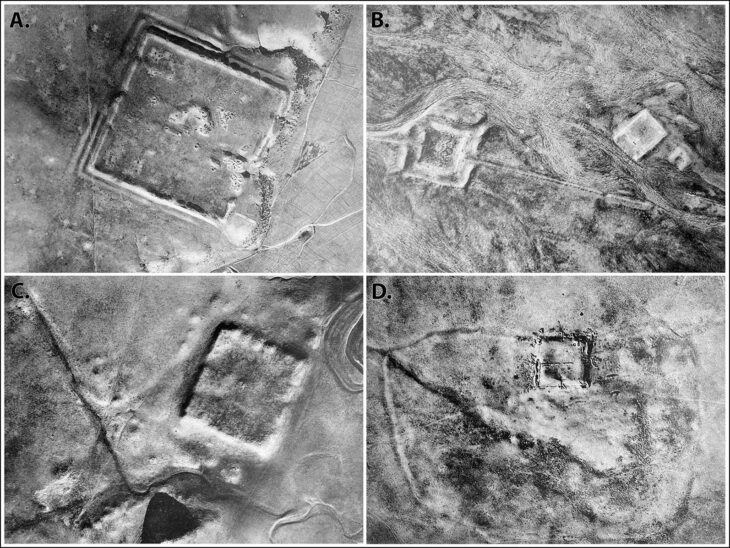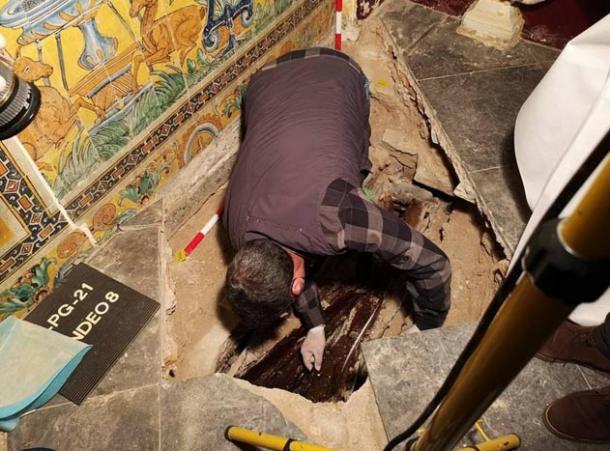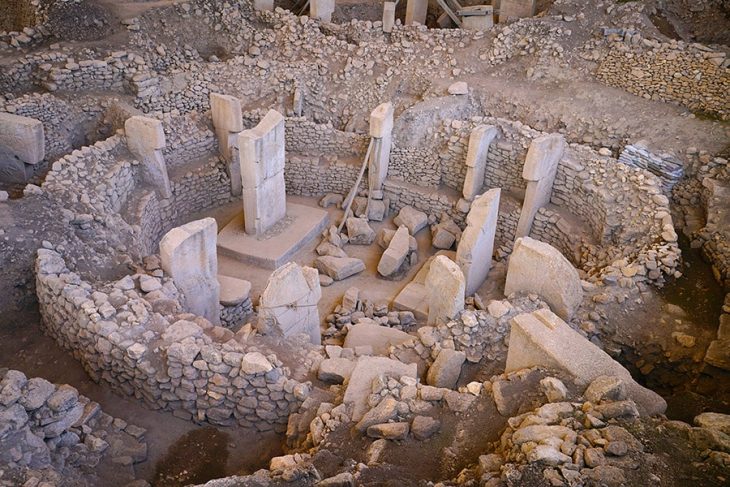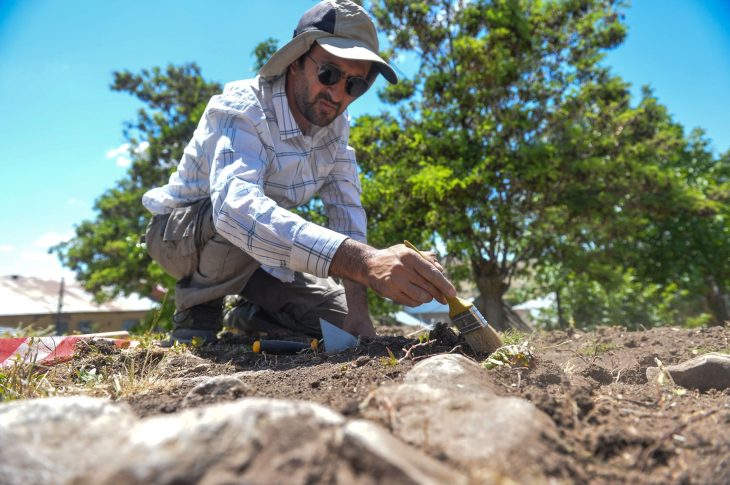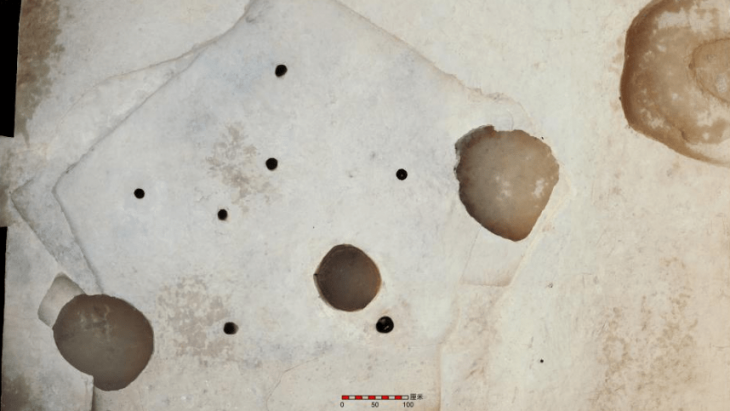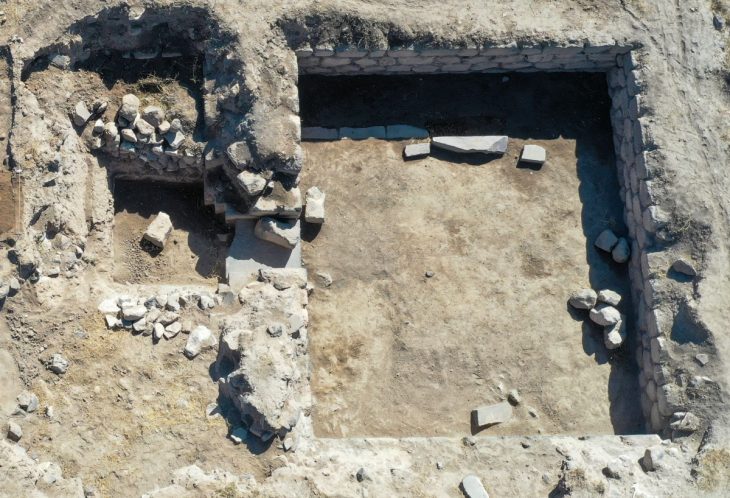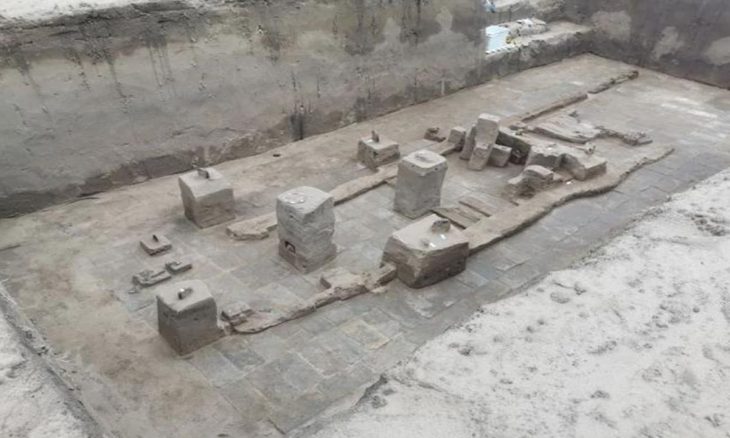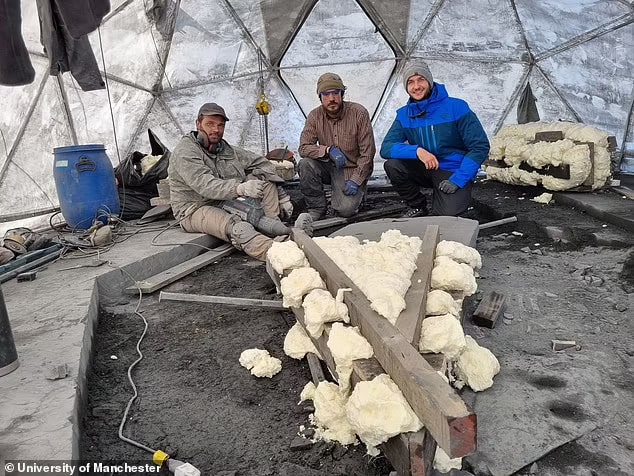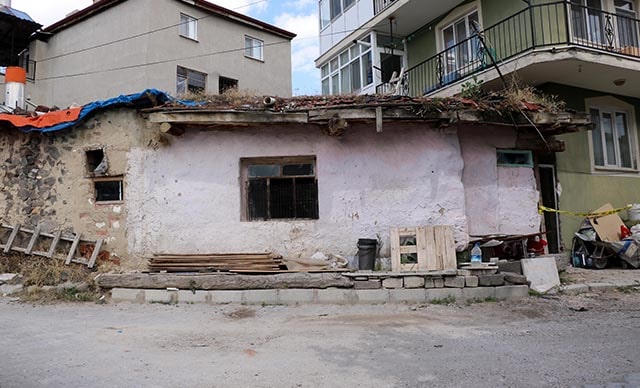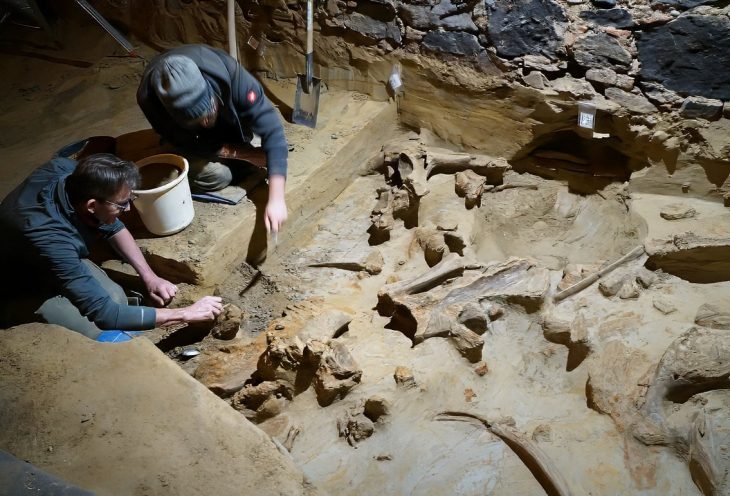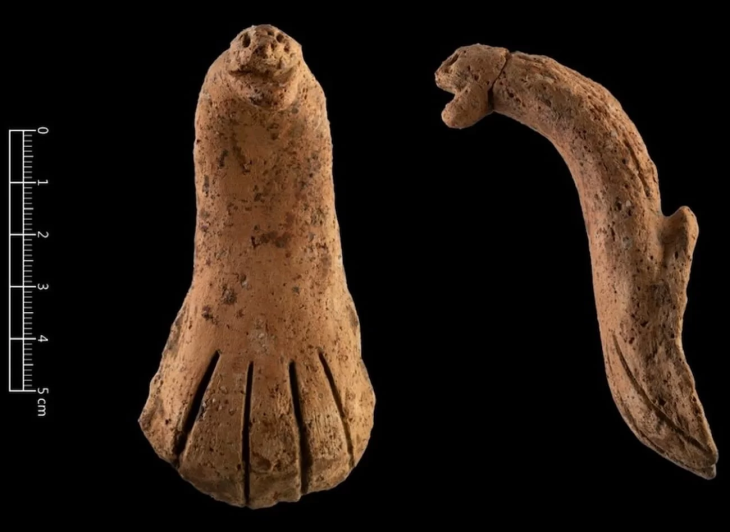Spain was the scene of a new paleontological discovery. Paleontologists extracted 30 Titanosaurus dinosaur eggs from a two-ton rock in northern Spain, and believe that there may be as many as 70 inside the boulder.
The eggs were discovered in September at a dig site in Loarre, in the northern Spanish province of Huesca.
José Manuel Gasca was the first to notice the eggs. Gasca is a paleontologist and a member of the Crystallography and Mineralogy Department at the University of Zaragoza.
The scientist immediately sent a message to colleague Dr. Miguel Moreno-Azanza. The paleontologist, who was born in Huesca in northeastern Spain, now resides in Portugal as part of a research team at the Universidade Nova de Lisboa. Moreno-Azanza went to the Loarre Mountains as soon as he heard the news.
To begin the extraction process, a team of paleontologists from the Aragossauros Group – University Institute of Environmental Research in Aragon, University of Zaragoza, and Universidade Nova de Lisboa – traveled to the location. The crew, led by Gasca and Moreno-Azanza, discovered a high number of shell remains and whole complete dinosaur eggs at first.
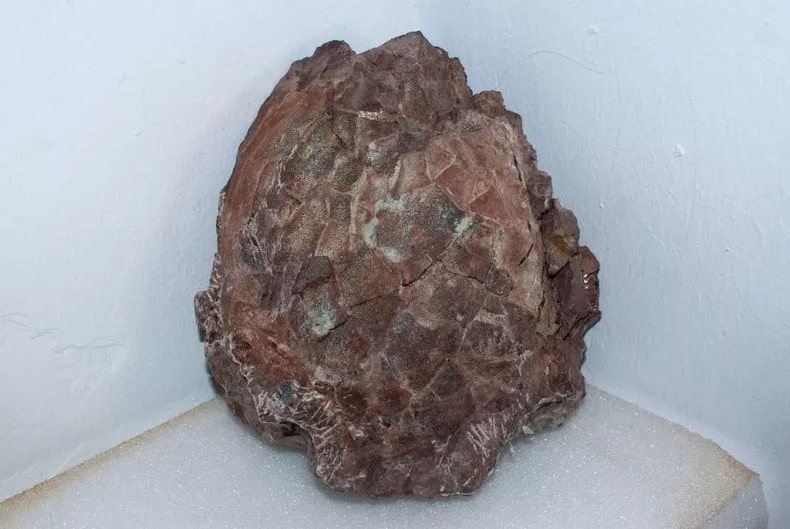
The titanosaur was a long-necked sauropod that lived until the extinction event at the end of the Cretaceous period 66 million years ago. Preliminary tests indicate that the nests belonged to the titanosaur, a quadruped herbivore with a long tail and neck that could reach up to 66 feet in length.
Moreno-Azanza stated in an interview that two nests were dug in 2020 and that around 30 eggs were recovered in the rock.
“The main objective of the 2021 campaign was the extraction of a large nest that contains at least 12 eggs that were integrated into a block of rock weighing over two tons,” he said.
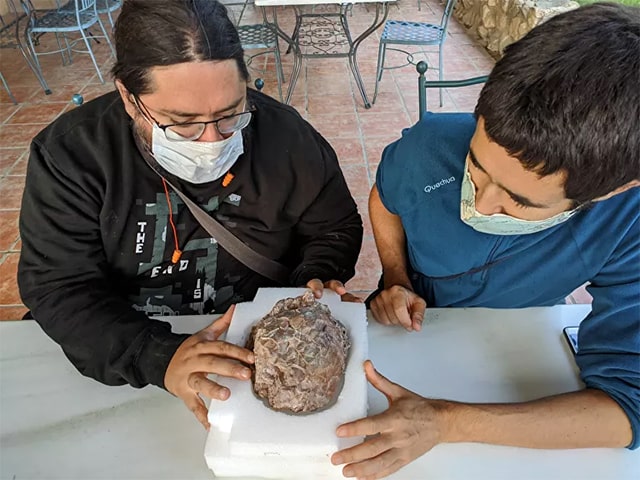
“In total, five people dedicated eight hours a day for 50 days to excavate the nest, which was finally removed with the help of a bulldozer.”
Moreno-Azanza pointed out that the extraction of such a large rock is unusual. He said that it and the 10 smaller rocks from the site are now in a warehouse in Loarre and will eventually be displayed in the future laboratory museum.
He said the exhibition would be a satellite room of the Museum of Natural Sciences of the University of Zaragoza and feature specimens from the Loarre site and replicas of dinosaur eggs from other parts of the world.
The excavation work is being funded by the Portuguese Foundation for Science and Technology and the Spanish Ministry of Science.

